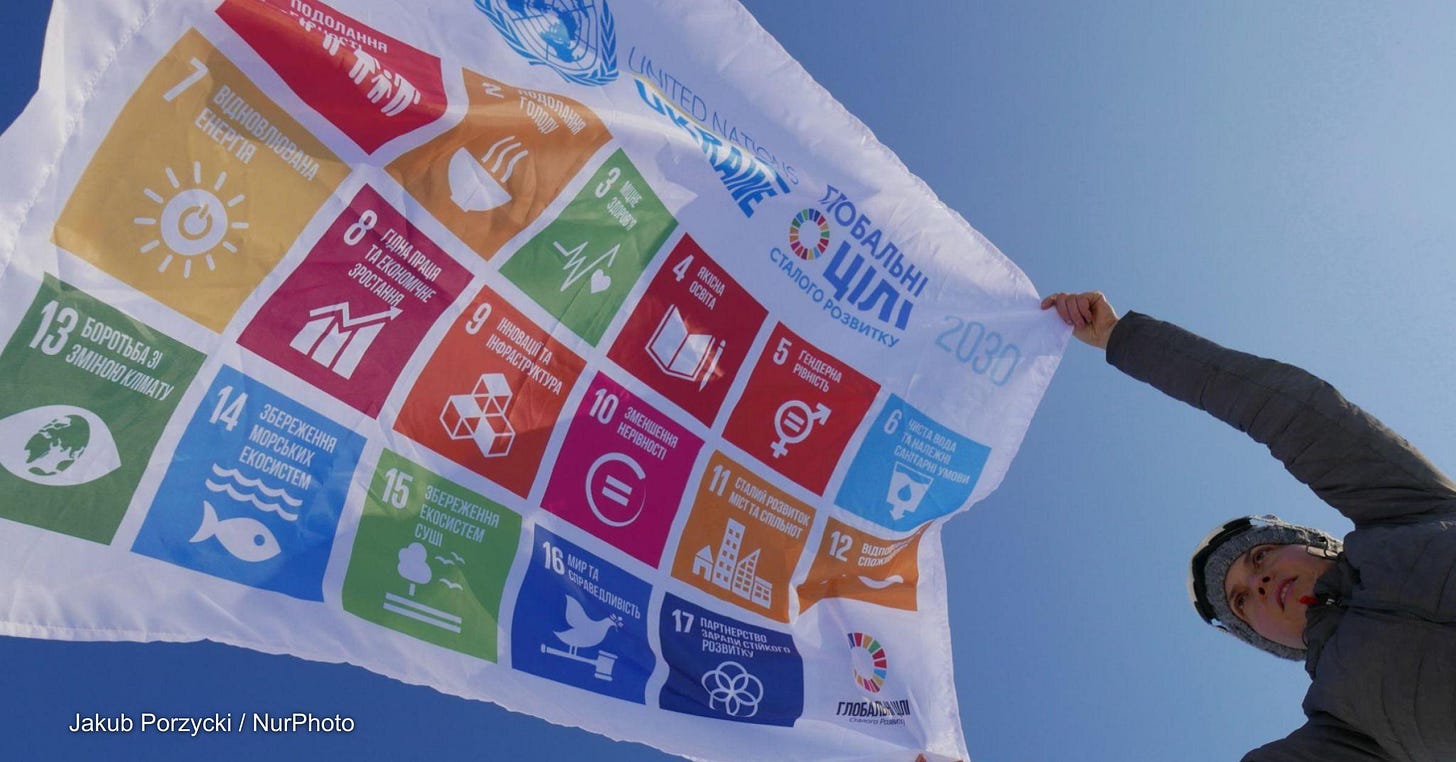USG fighting to get rid of the term “Sustainable Development Goals” and other globalist fantasies at 10-yearly UN Financing for Development Conference
A reason to stay in the UN is to fight against it
from DEVEX
JUNE 17, 2025BY JESSE CHASE-LUBITZ
The year’s most anticipated development conference is just two weeks away, and trouble is on the horizon.
The Fourth International Conference on Financing for Development, or FfD4, in Seville, Spain, is meant to set the development world’s priorities for the next decade, but the Trump administration is waging an aggressive campaign to make sure its ambitions are as muted as possible. In closed-door United Nations talks, the U.S. has proposed over 400 amendments to a leaked draft of the FfD4 outcome document, my colleague Colum Lynch exclusively reports.

Key U.S. proposed amendments include:
-
Striking out references to the Sustainable Development Goals and replacing them with “responsible development” goals.
-
Blocking efforts to close the $4 trillion annual financing gap for the SDGs.
-
Removing commitments on climate action and phasing out fossil fuel subsidies.
-
Eliminating calls for debt relief and weakening provisions for sovereign debt restructuring.
-
Rejecting any reference to gender rights, instead focusing on protections for “women and girls.”
-
Opposing multilateral tax cooperation, including U.N.-backed proposals for a global tax treaty. [So the UN could collect taxes from all the world’s citizens forever—this is what is meant by the term “sustainable” financing]
-
Blocking stronger international trade regulations, including rules on tariffs and World Trade Organization reforms.
-
Opposing commitments to “combat inequalities” between countries and prioritizing domestic resources over international financing.
“It’s a complete divide between the global north and the global south,” Ishaan Shah, a U.K.-based advocate with the Young Feminist Caucus, tells Colum. The Group of 77 — a coalition of over 130 low- and middle-income countries and China — is “adamant about not rolling back” pledges made at the previous FfD in Addis Ababa, Ethiopia, in 2015, he adds. The gist of their argument is “we agreed on this ten years ago.”
The ground is constantly shifting at preparatory FfD4 meetings. The U.S., U.K., EU, G77, Japan, Switzerland, and CANZ (Canada, Australia, and New Zealand), all “broke silence” over the weekend, which means that they formally objected to a draft agreement. They specifically objected to a paragraph in the text that would commit governments to try to create an international debt architecture under the U.N. that would give global south countries an equal seat at the table. Facilitators offered a new version that reinstated the debt section, but watered down the language on how hard the countries would work to address debt sustainability.
“The draft outcome document of the UN Financing for Development Conference, tabled for adoption … falls far short of the ambition the world urgently needs,” Iolanda Fresnillo, a policy and advocacy manager at the European Network on Debt and Development, tells me. “Key paragraphs have been significantly weakened during negotiations, with many meaningful commitments to reform the global economic system diluted at the insistence of Global North governments. Countries are not obligated to endorse this inadequate text today and can keep negotiations open until the conference in Sevilla. It is a clear case of ‘job not yet done.’”